The words are haunting and stomach turning: the sounds of a man begging for his life, while the person ostensibly meant to protect and serve ignores his pleas for nearly nine minutes, ultimately killing him.
One word in particular has resonated with people globally. In the last minutes of his life, George Floyd called out for his mother, who passed away around two years ago.
“Mama,” he shouted. “Mama… I’m through!”
On Tuesday, George Floyd will be buried next to his mother in Pearland, TX.
His cry resonates so deeply with us because most of us know what it’s like to need your mom — even as an adult, to need the particular brand of comfort and reassurance that only a mother figure can deliver. And, of course, his words have been especially impactful for Black mothers and mothers of color, who are intimately familiar with the fear that comes from knowing that your child is not completely safe, even from the people who are meant to be beacons of safety.
Not long after the video of George Floyd’s killing became public, a slogan started appearing on posters and city walls: All mothers were summoned when he called out for his mama. And it's true: Mothers around the nation are calling for justice for Floyd, for Breonna Taylor, for Ahmaud Arbery, and for all the Black people whose lives and livelihoods have been put in danger due to systemic racism and violence perpetrated by authority figures. They're demanding reforms in the criminal justice system.
We asked five Black moms what they want the world to know about the unique and painful burden of fear that comes from watching people — people who look like their children — die.
Interviews have been condensed for length and clarity.
To help bring attention to the police killing of George Floyd, you can sign the Change.org petition here, or donate to local organizations like Black Vision Collective or Reclaim the Block via the Minnesota Freedom Fund here.
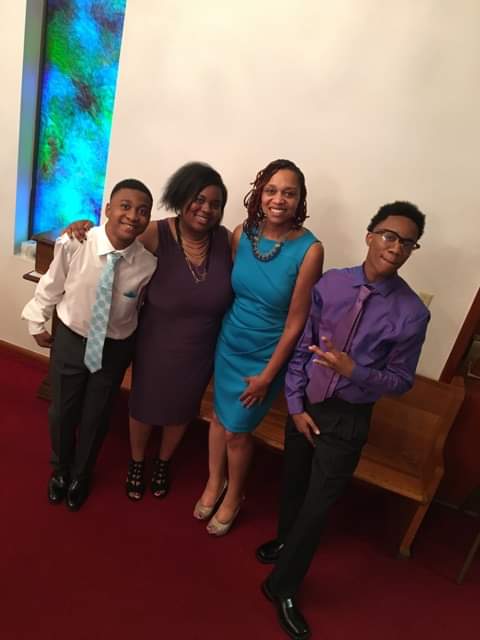
Marietta, GA
Mom to Ashleigh, 22, Malcolm, 20, and Martin, 16; Grandma to Dante, 5 months
“When I saw the news about George Floyd online, my initial reaction was to close my eyes, and keep scrolling for a second. I realized, here’s another one. But at first, I wasn’t ready to see it. I still haven’t seen the full video, only clips. I start watching and there’s just anger. It’s me screaming at my phone, ‘Get off him,’ as if I was a bystander.
“I haven’t been able to watch the part where he asks for his mom, though I’ve read about it. I know what it sounds like to have my son scream for his mother because he’s in pain — my son Malcolm is a basketball player, and I can remember him catching a Charlie horse. But to hear my son scream for me in pain, but to not be able to help him? To not come to his aid? And then to find out afterwards that Floyd’s mom had already passed away, it just spoke to his utter desperation in that moment. Any mom who’s ever heard their child cry out in pain would have a hard time watching that.
“I hope — no, I demand, because it’s time for our hopes and prayers to come to fruition — that there will be a systematic solution to the systematic problem [of police brutality]. We can debate the policy, but the effect needs to be equal protections and equal punishment.
“My first encounter with racism was in the third grade in the school system in Mississippi — I ended up getting a paddling... I was the only Black person in that class, I was the second generation to even integrate the school. To this day, you track it now, the educational system is where most of us experience our first case of racism. And there’s a pipeline from there to the prison system. It’s all connected. And so, what I don’t want to have to deal with is how to finagle all of those systems. I don’t want my grandson to have the added burden of just existing while Black.
“I channel my anger into activism. I’ve been protesting. I’d been at home for months because my immune system is compromised from Crohn’s [disease]. But I had to get out there and organize and partake in the movement. That’s my responsibility as a Black woman in this country. I understand that through history, my ancestors told me — told us — that this fight is not going to end until the racism ends. They told us this was going to be a long suffering fight. That’s what helps me get through this.
“You know, I felt like I was protesting COVID by staying at home for a long time. But I had to get out on the street to protest police brutality and systemic racism, I had too. I wore a mask and had hand sanitizer out there. But both these things are happening at the same time. I mean, the cops didn’t take a break from killing us during COVID, so we can’t take a break from protesting. This is a public health emergency — look at how many people [racism] has killed. Once you declare things a public health emergency, policy must follow.”
“The other day, when I went to vote, I was in and out in 30 minutes. I thought it was going to take at least an hour. When I realized I had all that time on my hands, and I still had my protest poster from a protest in the town square the day before, I stood on the corner by myself to make my voice heard. And what gave me hope was that people just walked up and joined me.”
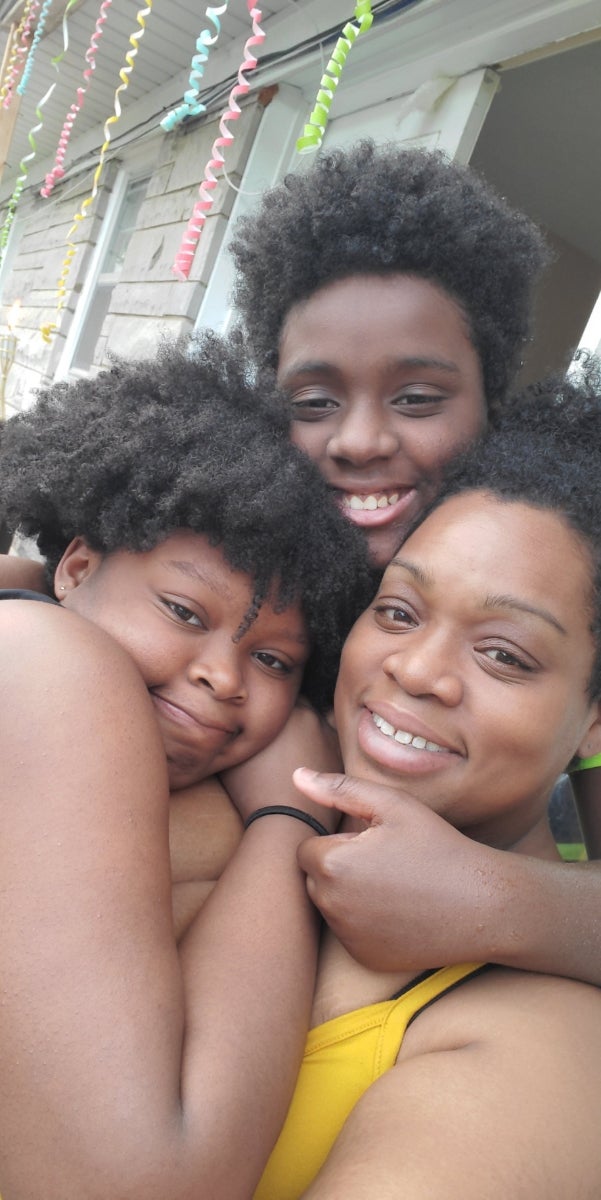
Louisville, KY
Mom to Leilana, 12, and Alexander, 11
“The video of George Floyd’s killing broke my heart, it really did. You can hear people in the background seeing this happening in front of them, and they’re screaming, ‘Get off him, get off him. Help him.’ And they did nothing. That’s the hard part. You hear people pleading for him but doing nothing.
“It was kind of hard to talk to my kids about it, because all they want to know is why [Chauvin] didn’t stop. They’re always taught that the police are there to protect them, help them, and keep them safe. But here, they saw in real time that the police did not care about this person. Their question was why. They see the pure humanity in people — that’s the innocence of children.
“You don’t know what to say to them because you don’t know why. You don’t want to start spouting out to them that it’s the race thing, it’s always race. I honestly couldn’t answer them. I didn’t want to sit here and make up an excuse for this man. There isn’t any excuse for it. They let that man die. You’ve got to explain to them that sometimes, the wrong people are put in positions of power. The system in place is supposed to help everyone, but they use it against the same people they’re there to help.
“Our conversation ended up being about how we can be safe, and what we can do to make sure that we’re okay when we leave the house. We talk about making sure everything looks good, from our cars to our clothing — everything. We have to make sure it’s right because if anything looks off, we become a target.
“And that makes them feel unwanted. ‘Why am I here if people are treating me like this?' It’s really hard to explain. I tell them, ‘You are a gift from God,’ but it’s hard to explain that one of God’s creatures thinks less of another one of His creatures. How do you tell that to children? Luckily, my kids are really smart, very precocious. My son is like, ‘Mom, I get it. It’s hard for us but I know I need to be careful and be strong for you.’ My daughter knows that no matter what’s going on, she needs to be there for her brother because at the end of the day, he’s always the target. Though she’s not safe either.
“It’s time for a change — real, bipartisan change. We need to all finally step in and look at our criminal justice system and see the flaws and the loophole — the way that it’s being utilized now is completely wrong and it’s hurting the people it’s also trying to protect.
“America is the land of the free. Everyone here is supposed to be free. But for anyone of color, we’ve never been free. There’s always been rules in place that have kept people of color at a disadvantage.
“I believe we need to create economic footholds, that is our key to a lot of things. We need more Black people owning their own business, buying capital, so we can have a true voice where it matters.
“And we need to remember: George Floyd was somebody’s son and someone’s father. Thinking about him in terms of those relationships put it in perspective. It’s realizing that it could be your loved one. Put yourself in our shoes, you know?”
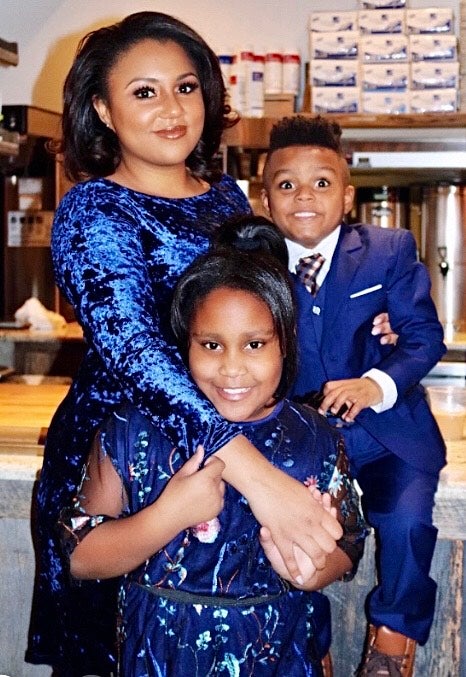
Baltimore, MD
Mom to Maya, 8 and West, 5
“When I first heard about George Floyd, I was with my children at home, and quite honestly, my initial reaction was disgust. I wasn’t shocked. Citizens have been filming Black people being murdered by the police for years now. I didn’t discuss it with [my kids] immediately because I struggled to find a way to tell them in the middle of a pandemic that there was another national issue they needed to fear.
“I told my kids over the weekend about it. I told them a Black man was killed in this country by a police officer, and while it was a horrendous act, I didn’t want them to be scared of being Black, nor did I want them to be fearful of the police or other races. I told them to continue to do as I’ve taught them, which is to respect all races. But because my oldest is active on social media, she’d already heard the perspective of one of her favorite TikTokers. My five-year-old son was terrified; he hid under the covers in my bedroom beside me and thought someone was going to kill him because he was Black.
“I once read a quote that stated, ‘Mother is the name for God.' My reaction as a mother was fear for my son. I’ve seen two extremes: One where my son is not disciplined in school because a white female teacher just wanted to show him love and affection, and the other being in public settings with him where I’ve seen his presence (while strapped into a stroller at one year old) made old, white women uncomfortable.
“There’s got to be some sort of middle ground — I’m not asking you to pacify my son and excuse his behavior, but please also let him live. He’s not a threat just because his skin looks different.
“Please, mothers who aren’t Black: educate your children about race, and don’t have the 'we all are the same' talk. We’re not. And that should be celebrated. Encourage your children to taste food from and listen to the music of other cultures, because I’ve been (forced) to do that for years. It makes my children more inquisitive, tolerant, and enamored by other races. Stop avoiding the conversation because you think the child may not be old enough. Even as toddlers, the talk can be had in some sort of form. Teach your kids to stand up for injustice, as it will also make them more confident people overall. And most important, talk the talk and WALK THE WALK. Watch what you say and what your kids hear from other family members, your friends, and the media they consume.”
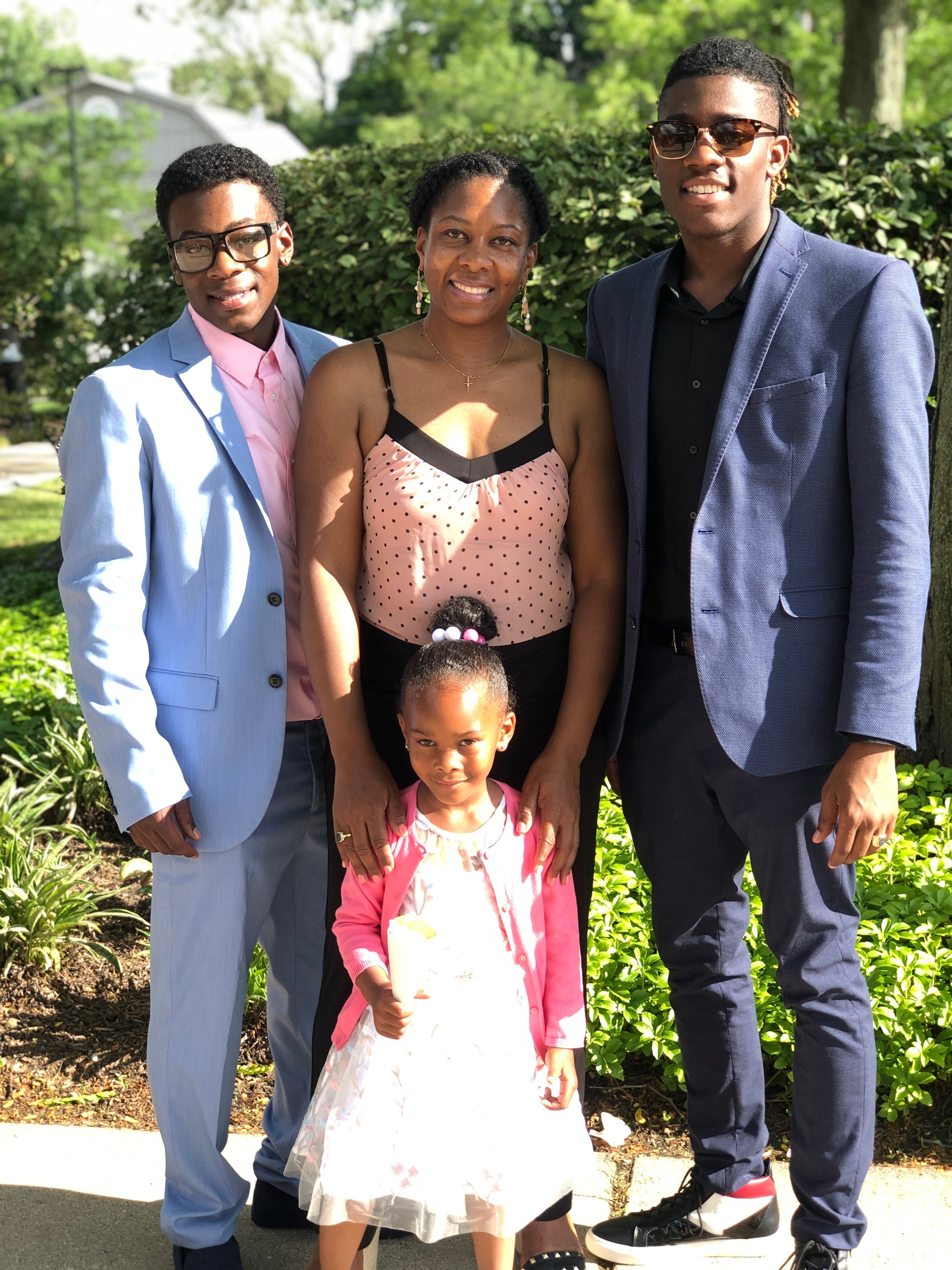
North Chicago, IL
Mom to Cortney, 29, Marshon, 23, and Taylor, 4
“I went out to protest the other day, and what I saw was a diverse group of individuals of all ages, genders, and races. That’s emulating what we’ve seen across the country and globally. Because this is not just a Black fight, but everybody’s fight — so that was good to see.
“My daughter’s a toddler so I don’t keep the news on when she’s around, but my sons are out there in the world now, so I worry about them. I’ve always worried about them. When my boys were younger, I had to have the conversation with them. Parents of color, we’ve all had this talk, it’s necessary. We lived at the time in a predominantly Caucasian community, and there’s always stuff that can happen — does happen — so I wanted to prepare them in the event that they were pulled over and stopped [by the police]. I wanted to equip them with some action of what to say. I didn’t want them to overreact or under-react.
“They’re reaction was always, ‘Mom, we’re okay, we got this.’ They didn’t have concern, but I always will. This is always on my mind. My boys both went off to college and I didn’t worry about them as much there, but when they got back around here, I worried. If they’re not home by a certain time, I don’t sleep. I need a check-in. I need a text. I need something.
“When I heard about Mr. Floyd, I went to my younger son’s room and I said, ‘Did you see what happened in Minnesota?’ And he said no, so I put on the TV. I said, these are the reasons I’ve always told you to check in.
“Mr. Floyd has a mom. Mr. Floyd has a daughter. I was just crying for him, but he cried for his mother.
“A cry for a mother is always heard by any mom. I can be out anywhere — Chuck E. Cheese or an amusement park, and I can hear my daughter calling mom. So it was a pain point to hear Mr. Floyd call out for his mother. In a kid’s eye, moms fix it. And even older adults — we love our dads — but for a lot of us, it’s mom. I think when he called for his mom, it resonated with a lot of us that he was someone’s child.
“I think to have a world where we as parents and children don’t have to have that 'talk' — that comes with changing policing and having some accountability. Acknowledging the fact that this does happen, there’s statistics that show we’re stopped more frequently of people who aren’t of color. And there are no repercussions. New officers are learning the routine from the previous officers. There’s a culture there. We need to revamp policing.”
Courtesy of Angenetta Frison
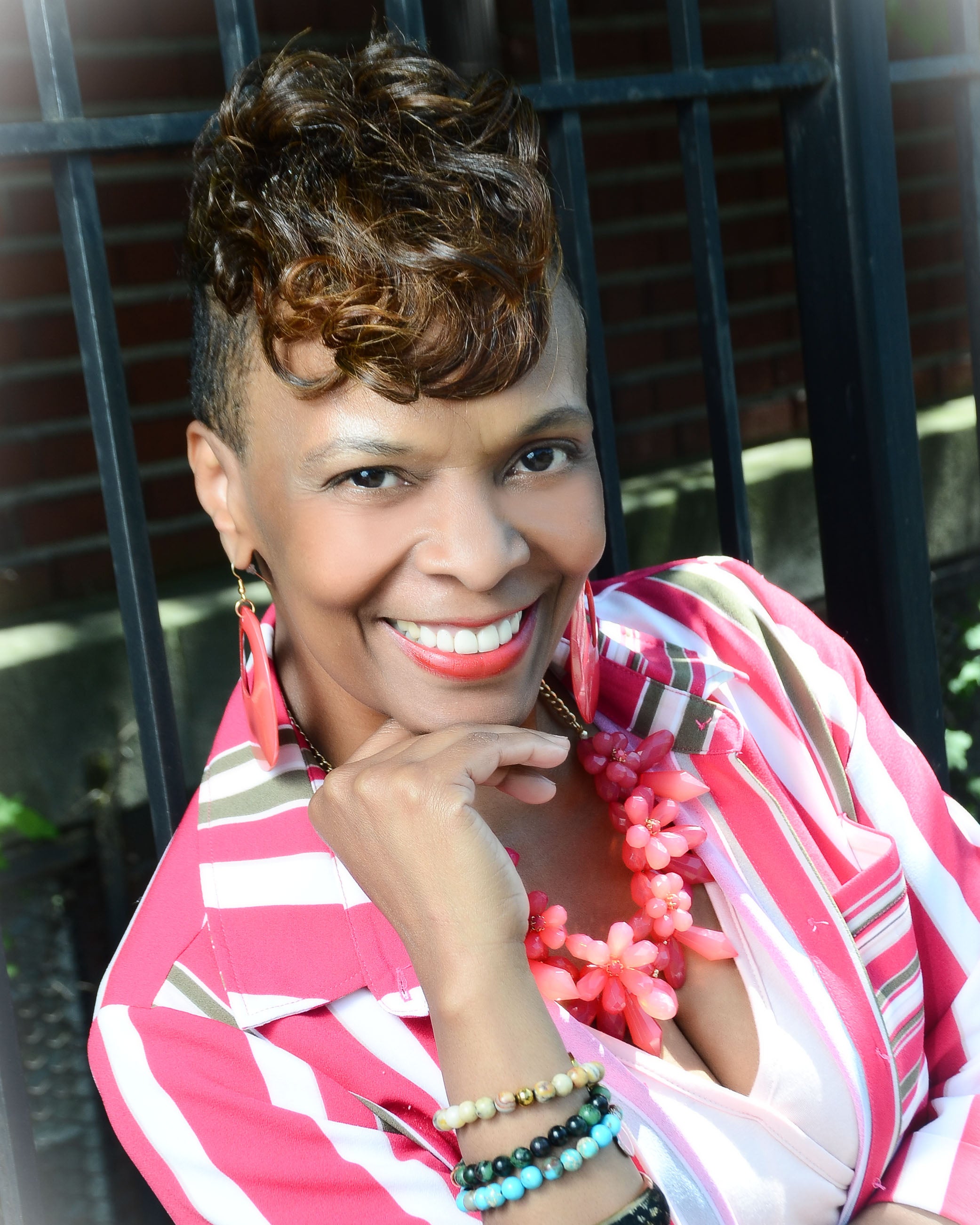
Anne Arundel County, MD
Mom to Janee, 17, and Isaac, 5
“I was sitting in my living room just off the kitchen and when I saw the George Floyd video. I cried out to God. The look on the officer’s face as he had his knee on George’s neck was without empathy. Lifeless. The officer was seasoned, and had to have understood that George was asking for help. I initially began to think: How did that officer grow up? What was his childhood like? What in his background caused him to act in such hate towards a man of color.
“I thought, what if that was my nephew, my son? I was full of fear and my heart skipped a beat. Then, I decided to go outside to play with my son.
“My skin color is just like George Floyd’s. Life has not always been easy for me. I’m a domestic violence survivor and was once in a coma. Growing up, I chose to work directly after graduating from high school. I would watch as a person with white skin earned a position over me, even though, at that time, I had more experience. I can remember my Dad, who I consider the heartbeat of my life, telling me: People will show you who they are, so listen. I created my stage play, and wrote my book as a way of telling my story and healing through the arts.
“I chose to settle down in my area of Maryland to give my family a good education and quality of life. But even while living here in Anne Arundel County, my daughter has experienced racial slurs. After George’s killing, she asked if we could go to DC to protest. While I wanted her to get involved, my gut feeling as a mother was to ask her to stand down. I wanted her to be safe. It was that very day that all the madness with President Donald Trump occurred. Simply so he could take a photo holding a Bible in front of a church, he had authorities use [pepper balls] to clear out a group of peaceful protesters. I was glad I made the call that night. But, as a mother, I still want her to know how to protest and make her voice heard.
“Here is what I know: Regardless of where you live in the world, we are all impacted by racism. As a mother, I’m intentional about raising a brown-skinned, smart, and strong son who is aware. The same holds true with my teenage daughter. I know my children are productive, aware citizens.
“I was rocked and comforted by my father when I was a child. I listened to his heartbeat and drifted off to sleep. My dad recently had a stroke and during the heart ultrasound, I got the chance to listen to his heartbeat again. George Floyd had a mother whom he loved so much, that in his last minutes of his life, he cried for her. George needed to hear the heartbeat of his mother. Some say since she has passed away, his mother’s arms may have been out-stretched for him to run into in the moments he was killed. He knew she would protect him.
“Regardless of who you are, you have a heartbeat. What is that heartbeat going to stand for? Unity, love, compassion, and healing? Or hatred, death, killing, and destroying?”
Like what you see? How about some more R29 goodness, right here?
3 Other Officers Charged In George Floyd Killing
What Asphyxia In George Floyd's Autopsy Means
Officers Who Killed Floyd Have A Troubling History
from Refinery29 https://ift.tt/2AbajO5
via IFTTT
